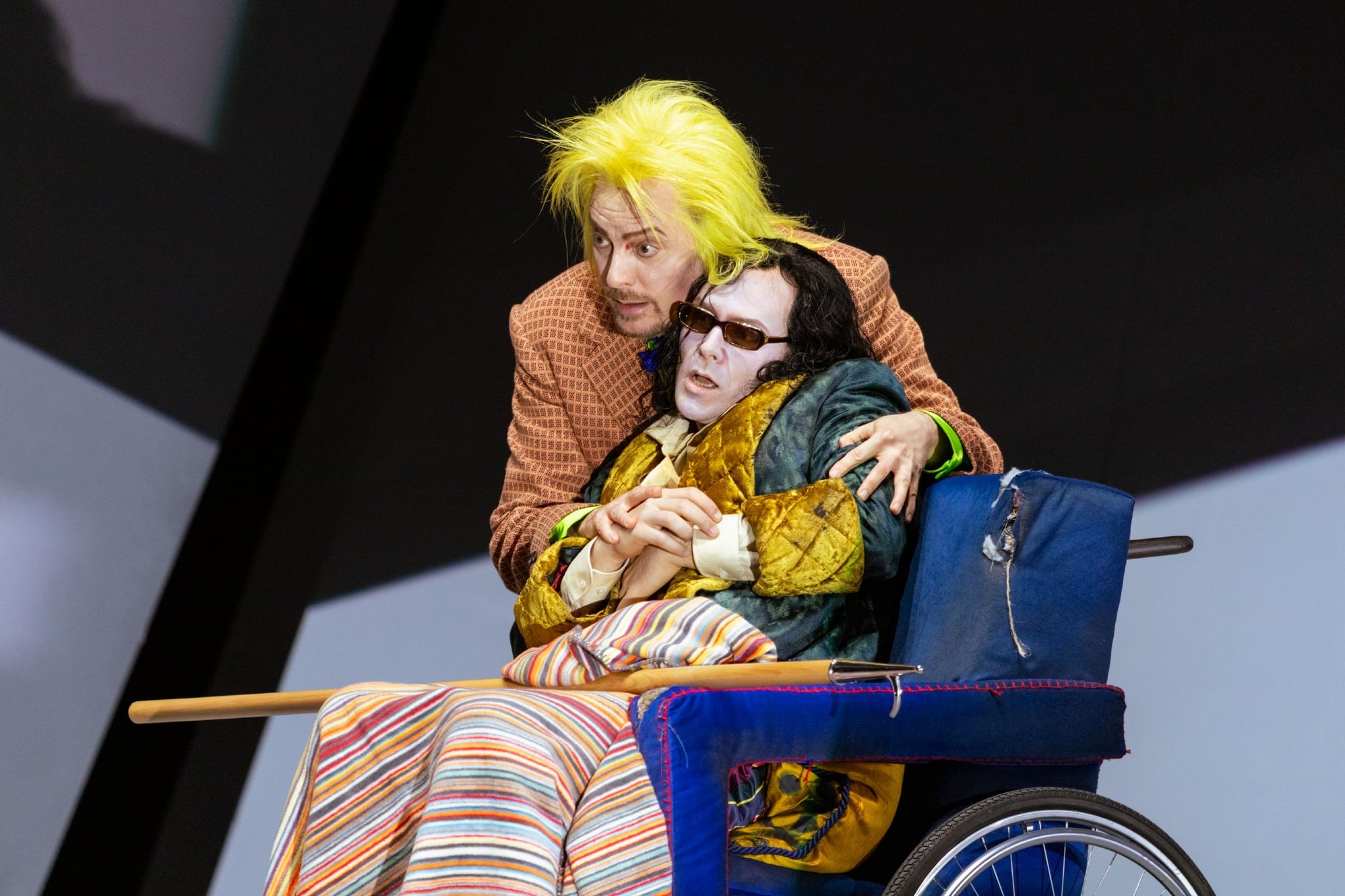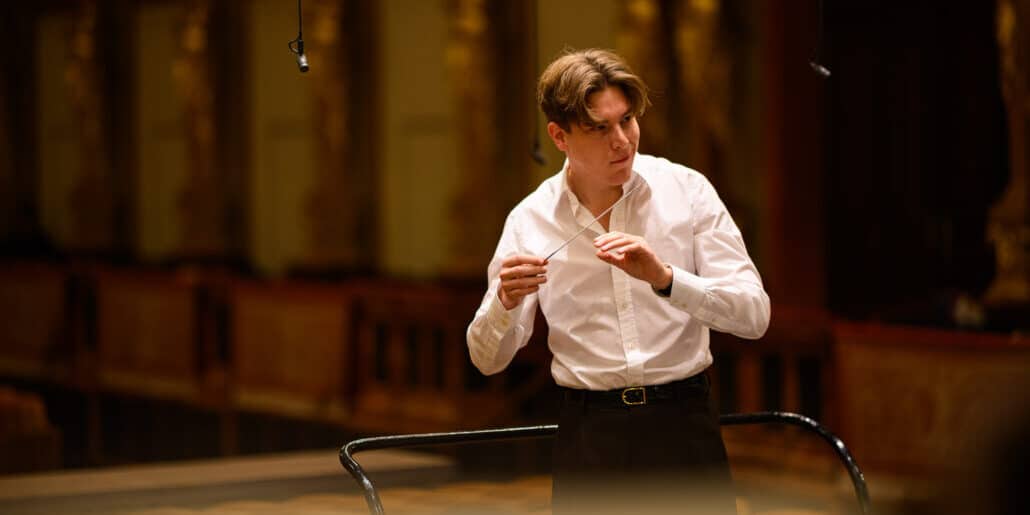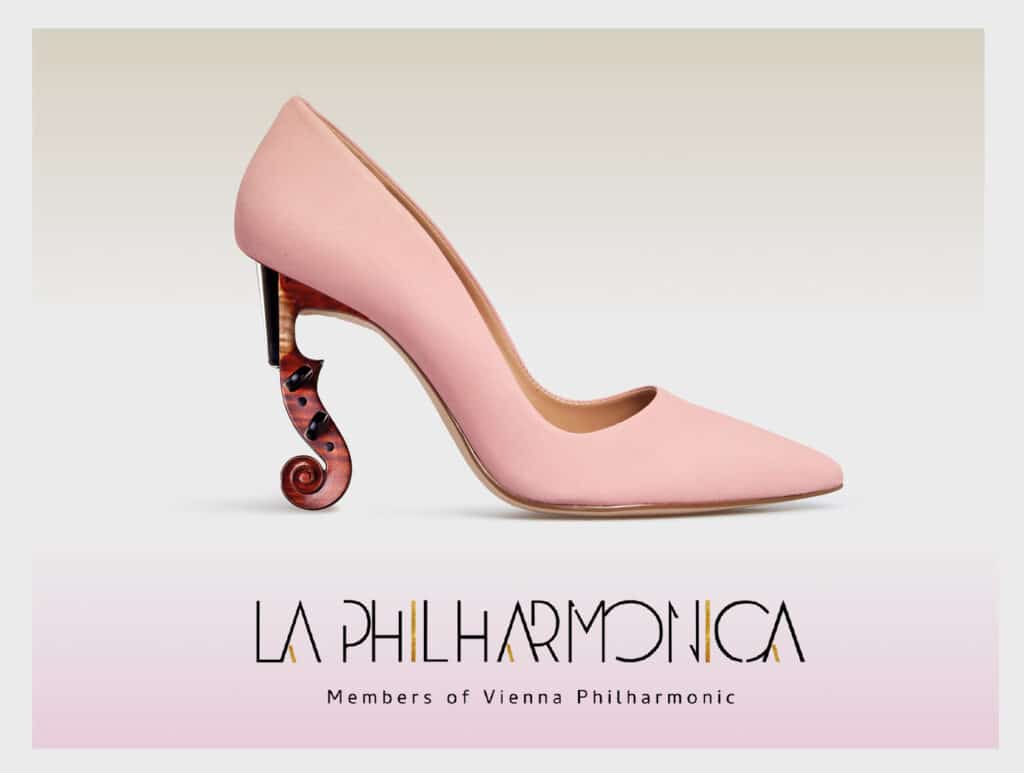First report: Vienna’s Endgame
OperaThe Israel composer Oded Zehavi attended the dress rehearsal today of György Kurtag’s late opera, Fin de Partie:
There are similarities between Endgame and Wozzeck. Musical interpretation of great literary text is not easy: it takes great compositional skill and a thorough understanding of the text. Kurtag created a score that gave Beckett’s drama its necessary space and added a whole musical universe that unfolded in front of our eyes and ears.
From abrupt short phrases and musical “events” to more lyrical and expressive musical passages, Kurtag’s music was always interesting: extremely well-orchestrated and dramatically fit. A wonderful cast, headed by Simone Young, gave a mesmerizing performance. It is the second time I hear Ms Young in a live concert, and (just as I felt in her reading of Brahms 2nd with the National Symphony Orchestra in Washington DC) I thought that she performs the piece as if she wrote it. It was beyond just understanding, it was living the score.
Cast: Philippe Sly is Hamm, Georg Nigl Clov, Charles Workman Nagg and Hilary Summers Nell.






Kurtag’s work appears to be a very apt celebration of ruins. Hence Becket is just the right author for him….. it all fits into the postwar mental climate of nihilism and despair.
This is not a critique but an observation: I think Kurtag is at the end of a specific tradition that began with Schönberg’s expressionism.
https://www.youtube.com/watch?v=1olWHlePhuA
https://www.youtube.com/watch?v=5N18U_ltoz8
I think it’s all AWFUL, chewing on early 20C pain and not much else, painting a lightless world without hope.
So you don’t like this opera – I get it. Shocking! I only know the work from a recording of the La Scala premiere in 2018. I have a lot of Kurtag in my Spotify library. I have loved the play since I first read it around 1970. Kurtag’s music is a well-matched reflection of Beckett’s text. I am glad that he is working on a second opera.
Right now I don’t see much Hope in the world. What has changed since Beckett’s time? Regarding war & hate: not much. However, quite possibly there is a glimmer of hope for the future in that I see our
(meaning Australia’s) wonderful Simone Young was conducting.
It would be comfortably ‘nice’ to avoid the ‘pain’ of living. But is that honourable?
Simone Young is a fabulous conductor and I hope she goes on from strength to strength. I wouldn’t care for the Kurtag and I don’t like Beckett as I’m not a nihilist, but good on Simone for having a crack at it.
Love your work, Simone!!
Can avoiding ‘pain’ in music necessarily never be anything else than ‘nice’?
There is a difference between avoiding pain and cultivating it, celebrating it. There is a term for it: masochism, or: sadism if related to audiences.
Digging into the horrors of life and of the world has become an easy cop-out for artists, writers, composers. Namely, it is easy. There are enough works in the (older) repertoire which are saturated with pain but achieve a sublimation of it, instead of turning it into an escapist indulgence. Mahler is a case in point, or Bach’s Passions.
Should Bach have written more in minor because of the 30 Years War that had devastated Germany? Should composers like Mozart, Beethoven, Chopin etc. have restrained themselves to try to make something of beauty of their personal suffering?
The pain cult of the last century shows to be superficial when compared with these composers.
What about your new opera? And your upcoming performances?
There will be a European première in Germany, a double bill opera project is currently being under consideration by various German theatres, a German string quartet has…. and… but why should I inform Professional Musicians? Would they need such information? They are much too busy themselves – striding the world stages daily with Master Works, therefore they need to hide behind anominity to prevent their millions of fans knocking on their door. We know that they are so modest and humble.
I also attended the dress rehearsal and I was not convinced at all although there was so much greatness behind and on stage, Beckett, Kurtag, the fabulous singers, Simone Young…in my opinion this is not a text for an opera, Beckett did not like operas and when Morton Feldman asked him for a text he wrote a few lines on a tissue and that was his only opera text and it works fantastic with Feldmans music. Not so in “fin de partie” what was never planned to be an opera and what doesn’t work as to be sung, although Kurtag worked so subtle. The main reason for my feeling that this performance doesn’t work at all was the staging what also only tried to follow the text and made it superficially clownesk. Still Kurtag for me stays one of the greatest voices in music….